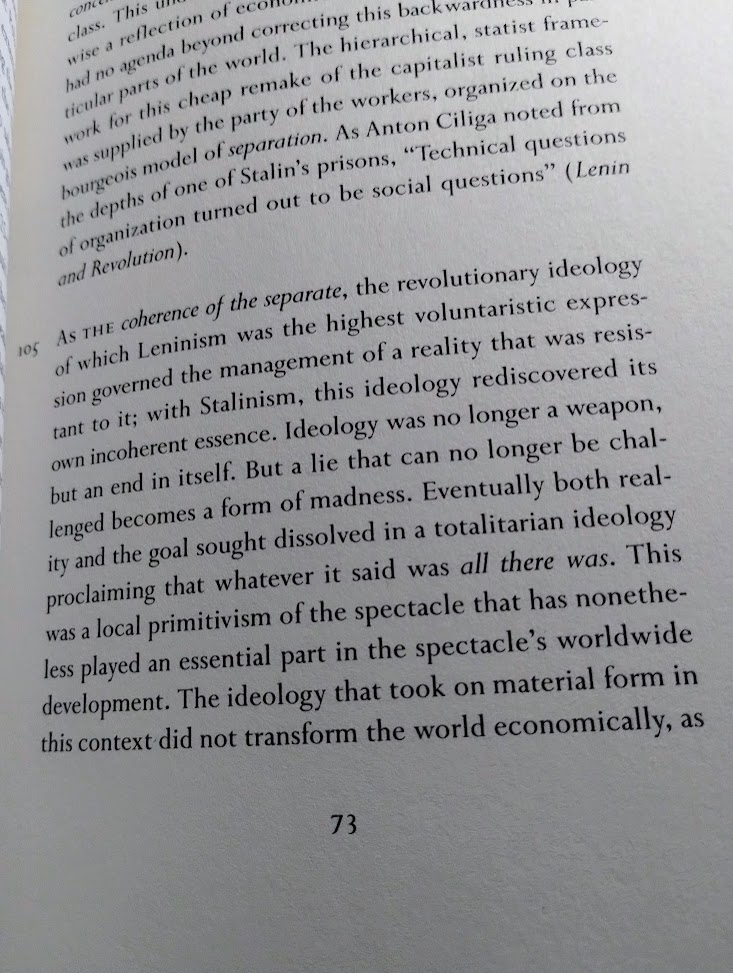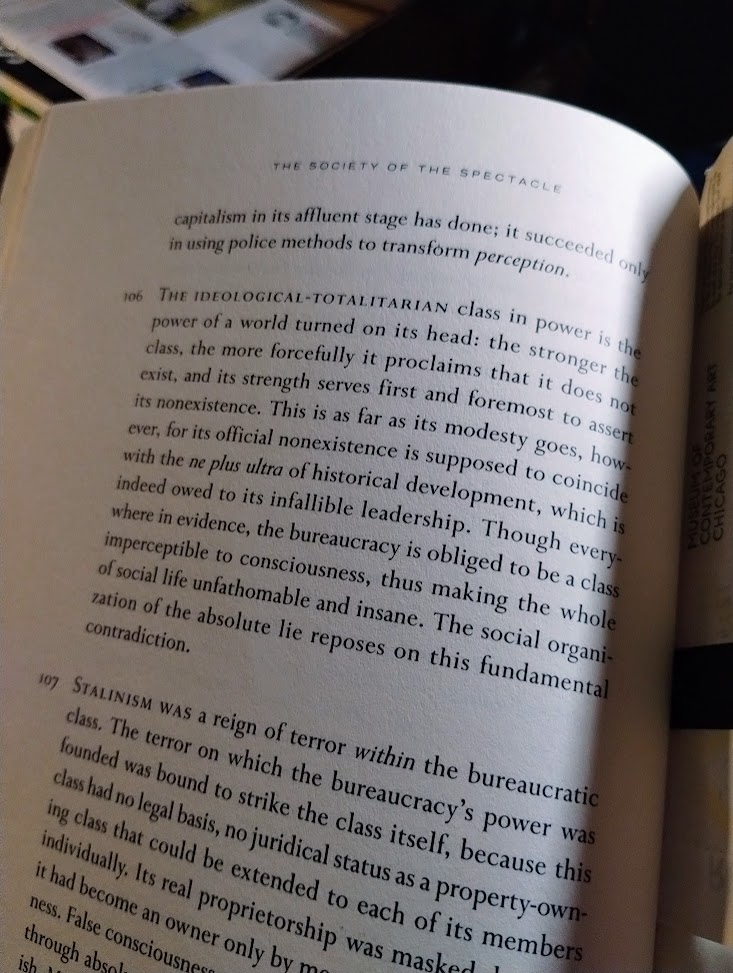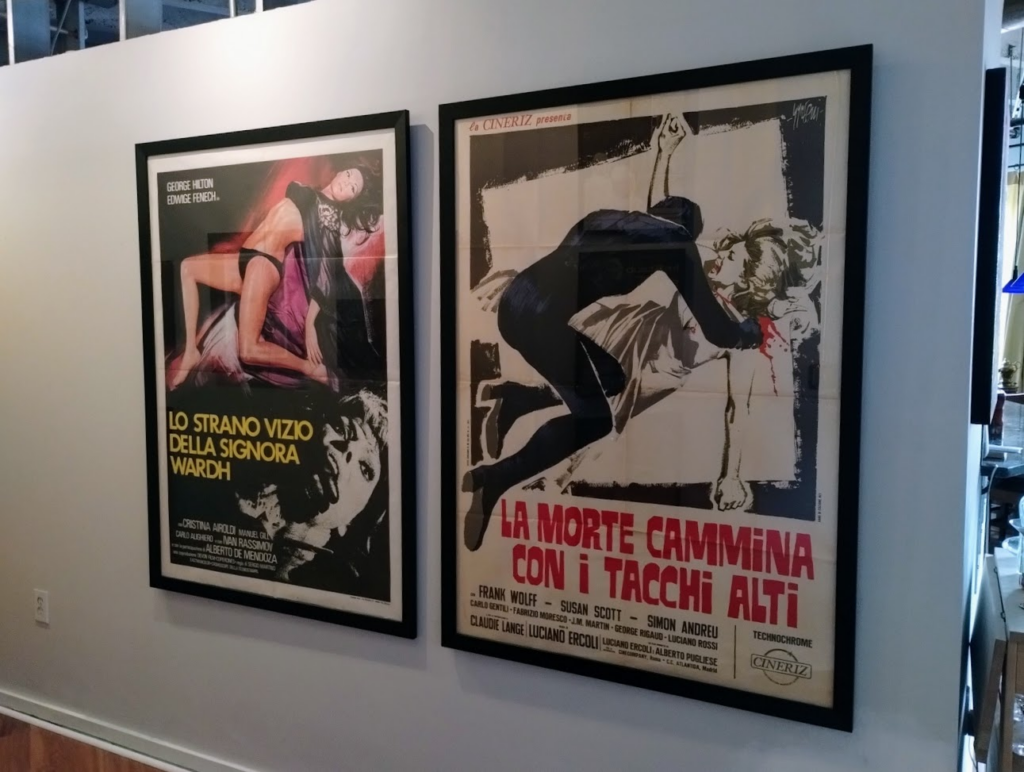But a lie that can no longer be challenged becomes a form of madness.
Over the past six or so months I’ve on and off been reading Guy Debord’s The Society of Spectacle. I had encountered his ideas in an essay which used them to explain much of modern social media, key is applying his observation of how capitalism molds “people” into “consumers” in such a way as to make their primary identities not only what they purchase, but the act of purchasing. See: YouTube videos of product influencers and the post-apocalyptically odd phenomenon of pre-teens making thousands of dollars a week off of unboxing videos. “Apple is better than Windows” has supplanted the identity of ideas with the identity of product.
(as always: my understanding of him may be a bit naive)
His book is broken up into 221 Theses as paragraph-long chapters that step through his observations to analyses and conclusions. As with other French philosophers from Saussure to Derrida it’s dense in curlicued, nouveau thought. Thesis 105 is less slippery, a key selection:
[W]ith Stalinism, this [revolutionary] ideology rediscovered its own incoherent essence. Ideology was no longer a weapon, but an end in itself. But a lie that can no longer be challenged becomes a form of madness. Eventually both reality and the goal sought dissolved in a totalitarian ideology proclaiming that whatever it said was all there was.


In elaborating on the themes in Dune, Frank Herbert had said–specifically of the far-distant events in God Emperor of Dune–the greater the power, the more far-reaching and catastrophic are its mistakes. In the 3,500 years between that story and the previous in Children of Dune a plan was implemented to alter the whole of human society but which, if it encountered any unanticipated divergence, could lead not to the intended perfect society but to a deformed dead-end. We see the tragedy of where this long game was going to end.
I’ll concede now that maybe we are the greatest country in the world. To have had such abundance and to have deformed so spectacularly in spectacle into our present day: only greatness could achieve that.
The collapse of everything within about a decade is surprising in its slowness because our age is never not described as one which advances exponentially such that the previous few years were today’s few months, and will be an even greater brevity tomorrow. How is it that, in this accelerationist future we’ve been cast into, a monumental collapse can proceed so languidly? Historians will (and today’s historians do) look at the actor Ronald Reagan (“I suppose Jane Wyman is the First Lady!”) and Newt Gingrich and the Southern Strategy–as many have said–as what set the path towards the present, as much as the Republican’s devil’s deal with fundamentalism did. Conservatism focused on power in the substrata of local politics, ensuring federal dominance in a representative democracy. Bravo for a successful long game I guess? Is there an irony that the basest trolls of the Internet call Trump the “god emperor”?
From The Guardian: Spirit of ’68 bows to market forces as rebel icons go on sale, Posters that fuelled the revolutionary fervour of Paris 50 years ago are being snapped up by collectors.

After learning of Guy Debord and the Situationist International movement, and after reading various articles on them, I did what anyone would do: I bought a t-shirt (based on the print in the upper right). I wanted to obtain something that represented my embrace of history and belief. Is there an irony that I bought a consumerist t-shirt with an image from the French student protests of 1968, who took their ideas from Guy Debord who warned of the current-and-coming age that has-and-will reinforce consumption to the point that consumption is the only point?
For the past year-and-a-half I’ve been documenting and collection visual consumer artefacts of a specific subject. The content was (somewhat) meaningless and it was perhaps the act of collecting that was relevant. These issues start folding in upon themselves and it’s hard to tell what is “consumption for consumption’s sake” and what is… not.

I went downstairs to pick up the two framed giallo posters that I had dropped off a week-or-so prior. As I restarted my marathon Italian movie festivals a few posters immediately came on my radar as must haves even though they are 2 fogli and so larger than what I should get for the space that we have. But we have them. Well, we have two of them framed and are still waiting on the third one which is kindof horrifying–even though such a wait can be normal especially with shipments coming from Italy or France–because it’s a Very Rare Poster. These were purchased pre-2025 when The Year of Italy Budgeting started so they constitute my complete collection for a while. (And of course framing costs 3x the posters themselves.)



I was wearing my 1968 French student protest shirt when we went to pick up the framed posters and an employee pointed at it and said that they’d seen the original in the Louvre. Whaaaaa? I guess I just thought it was part of cultural street are that maybe persisted via archived flyers or photos. On her phone she showed us the photos of the prints in the museum and… yeah, I’m glad I’m on a budget now because you can find originals in galleries for sale for $1,000-2,000, which is pretty reasonable considering the history.